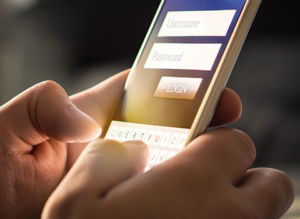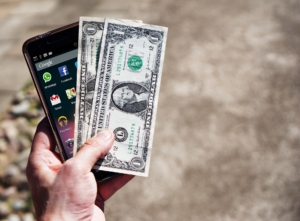How to Monitor a Cell Phone
Do you fancy yourself a spy and wondering how you can monitor someone else’s cell phone? You won’t get that information here, but there is some good info on cell phone monitoring if you keep reading:
 The Legalities of Tracking Cell Phones
The Legalities of Tracking Cell Phones
Generally, it is not legal to monitor a cell phone that does not belong to you. However, generally speaking, and THIS IS NOT LEGAL ADVICE, if the account is under your name or if you have written permission from the person who owns the phone, you can track it.
Why Monitor a Cell Phone?
There are some situations where it is perfectly legal, and even useful, to monitor a cell phone. One good reason is to monitor your family. This is especially the case if you have a tween or teenager who has some freedom.
Another reason you might consider monitoring a cell phone is if you have an elderly family member, like a parent, who uses a cell phone. If your loved one has dementia, you certainly should track their phone.
Businesses also often track company issued cell phones. The main reasons to do this is to locate a device if it is ever lost or stolen and to monitor employee communications.
The Main Ways to Track a Cell Phone
There are three different ways that people track cell phones:
- Through the Cell Phone Carrier – Most major cell phone carriers offer a feature that allows a person to track a cell phone that is on their account. There is a fee for this service, it is totally legal, and it’s a great way to track family members.
- Through a Smartphone or Computer– If you have a smart phone that runs iOS or Android, you can use features like Find My iPhone, or you can use apps like Find My Friends. Just keep in mind that the phones must have GPS enabled for these to work.
- Though a Third-Party App – To trace a phone through an app, you usually have to have access to the phone you want to track AND own it and/or written permission from the phone’s owner. Typically, both devices must have the app loaded for these apps to work. Some of these apps are free for limited features. Others come with a one-time or monthly payment for the service.
- Through an Infected email or Text Link – This is pretty much illegal and might get you stint in the klink. Pulling this off requires special malware or spyware which can be obtained on the dark web for a price. That will mean you’d got from being legal to the seedy world of Blackhats. And as they say, once you go black, you never go back. You would then officially be a criminal.
In most cases, it is not legal to trace or track a cell phone unless you have permission from the owner. However, each state has their own laws, so it’s very important that you understand the laws in the state you live. This way, you can avoid any repercussions.
Robert Siciliano personal security and identity theft expert and speaker is the author of Identity Theft Privacy: Security Protection and Fraud Prevention: Your Guide to Protecting Yourself from Identity Theft and Computer Fraud. See him knock’em dead in this Security Awareness Training video.

 For now, we have to figure out a way to keep this appendage juiced up without being lured into a data-sucking battery-charge station.
For now, we have to figure out a way to keep this appendage juiced up without being lured into a data-sucking battery-charge station. Nicholl, 63, was recently on a Chicago subway train. He brought with him a cell phone jammer. Unfortunately for Nicholl that day, Keegan Goudie was on the same train. Goudie is a blogger, noticed the infraction and began blogging about it. One thing led to another and Nicholl ended up being charged with the unlawful interference with a public utility.
Nicholl, 63, was recently on a Chicago subway train. He brought with him a cell phone jammer. Unfortunately for Nicholl that day, Keegan Goudie was on the same train. Goudie is a blogger, noticed the infraction and began blogging about it. One thing led to another and Nicholl ended up being charged with the unlawful interference with a public utility.























